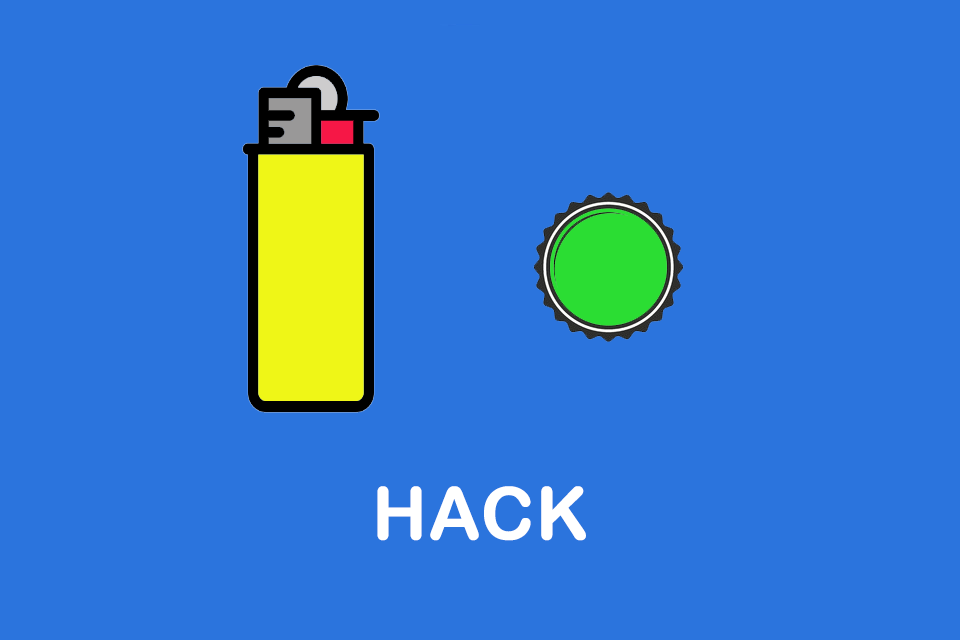What is a Hack?
Smartpedia: A hack refers, among other things, to an unusual solution to a problem, a technical trick, a workaround or the circumvention of security mechanisms.
Hack – a term with many meanings
Many people are able to open a beer bottle with a lighter. The lighter is misused as a bottle opener. Another word for such a diversion is ‘hack’. However, the English word has many other meanings:
- A sensationalist, superficial journalist is a hack.
- So is a riding horse, a show horse and an old horse.
- As is a taxi,
- a dry cough or
- a hanger-on.1
In addition to these meanings (and misappropriation), the term is also used as an
- unusual problem solving,
- technical tweak,
- functional enhancement,
- circumvention of security mechanisms,
- exploration of the technically feasible2,
workaround or - work with unorthodox.3
Nowadays, we encounter hacks in practically all areas of life: In dealing with products or services, in journalism4, in the household, in marketing, in business management, in cooking, in sports betting, in search engine optimisation or social engineering. And of course also in dealing with programming or computers. This is where the so-called hacker is at home. A nice quote is indeed: “A hacker is someone who tries to find a way to make toast with a coffee machine”5 , but often other motives are in the foreground. Three types can be distinguished:
- Black-hat hackers (people with criminal interests who, for example, penetrate computer systems or networks to cause damage or plant ransomware),
- White-hat or ethical hackers (persons who act in accordance with applicable laws and are active, for example, for security authorities or for larger companies in their IT departments), as well as
- Gray-hat hackers (persons whose motives are rather unclear and ambiguous; they penetrate computer systems, for example, in order to publish vulnerabilities they have found or non-public information in public).
Hacking as a popular sport
Hacking as an activity for the creation of unusual solutions to problems or misappropriations has become a popular sport in recent years:
- There are many useful and sometimes funny hacking videos on YouTube.6 For example, metal can be cleaned with ketchup and salt. By holding down the space bar, you can scroll down any web page (and up again if you hold down the shift key at the same time). You can use a biro nib to extend the life of mobile phone charging cables. And Post-Its can be used to clean the spaces between a computer keyboard.
- Organisations conduct hackathons – a portmanteau of hack and marathon – to find collaborative solutions to a defined problem.
- Organisations engage in growth hacking to increase their reach and awareness, improve their image and increase sales with the least possible financial resources.
- And companies try to influence the corporate culture through cultural hacking.
By the way: The value of an unusual change of purpose or functional extension can be expressed via hack value, but not in terms of benefit or price, but in terms of creativity and originality. However, if this goes beyond a playful approach, e.g. in professional software development, companies should take a very close look at the expected technical debt. The vast majority of quick-and-dirty implementations are unlikely to be worthwhile.
Impulse to discuss
What hacks do you use in your company?
Notes (Partly in German):
[1] dict.cc – Deutsch-Englisch-Wörterbuch
[2] On Hacking
[3] The list can easily be extended: for example, it is the colloquial abbreviation for minced meat, it is a German surname and a well-known manufacturer of bakery and confectionery products trades under the name.
[4] The computer scene is often cited as the origin of hacking. However, the term originally stood for journalistic work using unorthodox means. (Düllo / Liebl, Cultural Hacking – Kunst des Strategischen Handelns, S. 13)
[5] The quote comes from Herwart Holland-Mortiz, also known as Wau Holland. He was a co-founder of the Chaos Computer Club.
[6] Informative and/or funny videos
If you like the article or would like to discuss it, please feel free to share it in your network. And if you have any comments, please do not hesitate to send us a message.
And here you will find additional information from the t2informatik Blog:



